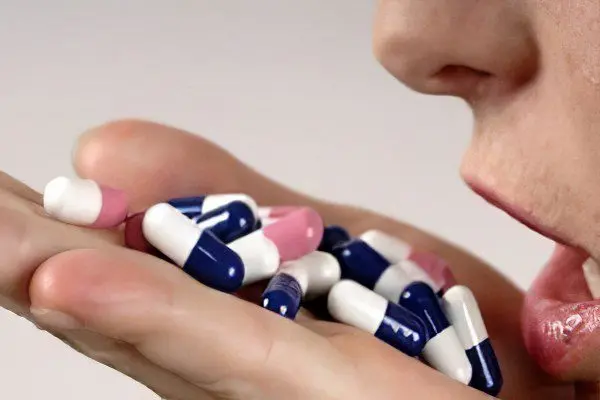Contents

Many years ago medicines were invented to alleviate various human sufferings. With inept and improper use, they can cause severe intoxication, and even death. Initially, drugs are prescribed to relieve pain, get rid of insomnia and solve other health problems, but sometimes they provoke an irresistible addiction. In this case, any prescribed treatment not only does not prolong the life of a person, but significantly shortens it.
It should be noted that sometimes quite harmless preparations of iron or other vitamins can provoke poisoning and overdose. Drug intoxication is a fairly common clinical situation of an acute type. It occurs quite often, since a wide variety of pharmaceutical preparations can be seriously overdosed. First of all, it is worth noting such drugs that cause addiction (opiates, hypnotics, sedatives, hallucinogens and stimulants. Also, cases of intoxication after taking antidepressants and antipsychotics are not uncommon.
How are drug intoxications manifested in the body?
The main symptom should be noted severe headaches. As a rule, several serious pathogenetic mechanisms for the development of such a factor are distinguished. If the patient has a slight predisposition to severe headaches, or when headaches are compensated, often taking pharmaceuticals causes a disruption of directly compensatory possibilities. These drugs often include hormonal and oral contraceptives, as well as other sympathomimetics.
When severe headaches occur with vasodilation, caffeine, nitrates, nifedipine, pseudoephedrine, hydralazine, and bronchodilators usually cause this effect. In some cases, headaches are included in the structure of another syndrome – the withdrawal of analgesics, ergotamines, NSAIDs, caffeine or narcotic drugs.
The development of benign intracranial hypertension and aseptic meningitis can be provoked by such modern drugs as ibuprofen, methotrexate, or intradural administration by mistake of any epidural anesthetics. In addition, some antibiotics, oral contraceptives and corticosteroids can be counted among them.
Personal and behavioral changes, as well as cognitive impairment from taking numerous drugs, are due to direct effects on the human nervous system. Such serious disorders are mediated by various lesions of the kidneys or liver. As a rule, the severity of these symptoms has a specific dose-dependent character.
Many chemotherapeutic agents, such as methotrexate or cytosine-arabinoside, often lead to the development of severe intoxication of the body with toxic brain damage. This condition is also called leukoencephalopathy. The main signs of this syndrome are various mental disorders, which usually progress in the form of depression of consciousness, after which the risk of death is high.
In addition, simultaneous with this dangerous therapy, brain irradiation or prolonged interthecal administration of drugs significantly increase the risk of complications.
Childhood drug poisoning occurs more frequently than intoxication in adults. taking certain drugs in high dosages or uncontrolled use of several types of drugs by a child in the absence of adults are the most common cases. Targeted drug poisoning in adolescence is much less common in suicides. Commonly used drugs include benzodiazepines, analgesics, potent anticholinergics, tricyclic antidepressants, and antihistamines and hypnotics.
How to solve the problem of intoxication of the body with drugs?
With the prescribed treatment, which causes severe headaches, the timely cancellation of a particular drug is indicated. With the development of intracranial hypertension of a benign nature or in the event of aseptic meningitis, additional therapy is prescribed in a hospital under the supervision of doctors. As a rule, a mandatory consultation with a neurologist is recommended.
Of no small importance in this case is the accompanying neurological symptomatology, which is expressed by the absence of positive dynamics due to the discontinuation of a particular drug, which allegedly caused significant headaches.
When discontinuation or replacement of the drug is not possible, then a certain symptomatic treatment is necessary. To resolve this issue, consultations of narrowly focused highly qualified specialists are required. Usually, a simple change in the regimen of taking this pharmaceutical agent helps a lot in reducing the severity of headaches.









